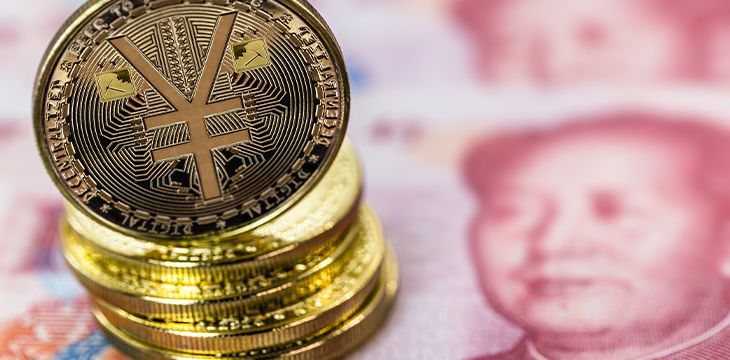|
Getting your Trinity Audio player ready...
|
China’s digital yuan will give its users privacy but it will not be anonymous, according to a top official at the People’s Bank of China. The controllable anonymity will protect the central bank digital currency (CBDC) against criminal use and ensure the bank can track all payments the users make.
Mu Changchun, the director of PBoC’s Digital Currency Research Institute spoke in a forum recently where he dug into the privacy capabilities of the upcoming digital yuan for the first time. As state-owned newspaper STCN reports, PBoC is well aware of the money laundering risks that the digital yuan poses, and is prepared to thwart such uses.
Changchun pointed out that the controllable anonymity will be one of the defining features of the digital yuan. It will give the public reasonable anonymous transaction and protect their personal information. On the other hand, it will allow the regulator to monitor against money laundering, terrorist financing, tax evasion and other financial crimes.
“The anonymity of the central bank’s digital currency is limited anonymity under the premise of controllable risks. A completely anonymous central bank digital currency is not feasible. CBDC designs that can’t meet the requirements of anti-money laundering, anti-terrorist financing and anti-tax evasion will be vetoed,” he remarked.
The central bank official pointed out that all the popular payment methods in China, be it WeChat Pay, Alipay or credit cards, are tied to a user’s bank account. However, the state-backed digital currency will allow a bit more anonymity than these methods for smaller transactions. PBoC will allow users to transact small amounts without collecting extensive KYC data, with the users only requiring their mobile phone numbers. The transactional limits in such instances will be low and will be limited to day-to-day payments.
“If you want to make large payments, the wallet needs to be upgraded, and the wallet balance and payment limit will increase as the KYC intensity increases,” he remarked.
Digital yuan’s controllable anonymity will set it apart from digital currencies such as BTC, Changchun believes. He claimed that BTC has been used for drug and human trafficking “because of its anonymity.” In China, criminals have also turned to USDT to launder money, leading to a widespread government crackdown.
As CoinGeek reported last year, the PBoC cracked down on online gambling sites that were using USDT to launder money. The regulator worked with Huobi, which was alleged to have processed the most laundered funds via USDT, and OKEx exchange as well. In the first nine months of 2020, police cracked down on over 1,700 online gambling sites and close to 1,400 underground money transmitting businesses. These illegal businesses had processed up to 1 trillion yuan ($153 billion) in illegal funds.
To learn more about central bank digital currencies and some of the design decisions that need to be considered when creating and launching it, read nChain’s CBDC playbook.
See also: CoinGeek Live panel, The Future of Banking, Financial Products & Blockchain

 03-04-2026
03-04-2026 




